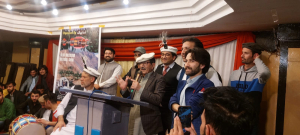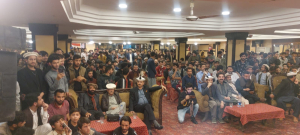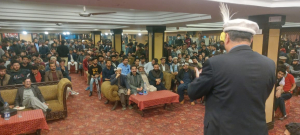FLI collaborated with the Initiative for People in Need (IPN), one of its partner organizations from the northern Pakistan to organize an essay writing competition in Indus Kohistani language community in Patan area of Kohistan on May 30, 2023. The activity was aimed at involving the youth in the language development process and making the young generation aware of the importance of using their native language for literature development. This was the first activity of its kind when the Indus Kohistani youth participated in a competition, held for writing their native language. In total, 26 students of Grade 10 from five schools, both private and public participated in the contest to write essays in their native language. The competition was based on spelling correctly, fluency and understanding of writing rules. The judges panel included Dr. HA Faizy and Molana Atif Ahmad Patanpuri who evaluated the efforts of participants. Both the judges are researchers of their language. Distinguished writers and literary persons from the Indus Kohistani group got the opportunity to speak to the youth regarding the language and literature. The office bearers of IPN appreciated the efforts of young people who showed their interest to write their native language. They asked the participants to use their language on social media and to motivate people in their circle to do so. Later, awards were distributed among high performers of the contest.
The Indus Kohistani language researchers have recently resolved some of the orthography issues hindering their language. People working with IPN are constantly pursuing the goal of strengthening their language in literature development.
Indus Kohistani is an endangered Dardic language of the Indo-Aryan family, spoken by about 400,000 persons according to the census of 2017. It is mainly spoken in the Bankad, Ranolia, Dubair, Jijal, Pattan, Kayal areas of district Kohistan lower and Seo and Kandia areas of district Kohistan Upper, Khyber Pukhtunkhwa.
Please use following link if you want to share your feedback about this or any other activity of FLI..
https://docs.google.com/forms/d/e/1FAIpQLSem4BHYkzeKxYsugKi0ZRHtjwMF922jvFl209qKdWxYnL3EhA/viewform

























